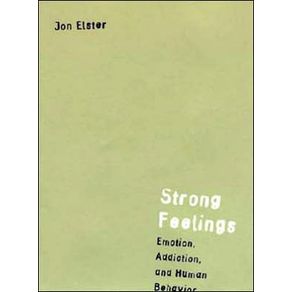Emotion and addiction lie on a continuum between simple visceral drives such as hunger, thirst, and sexual desire at one end and calm, rational decision making at the other. Although emotion and addiction involve visceral motivation, they are also closely linked to cognition and culture. They thus provide the ideal vehicle for Jon Elster's study of the interrelation between three explanatory approaches to behavior: neurobiology, culture, and choice. The book is organized around parallel analyses of emotion and addiction in order to bring out similarities as well as differences. Elster's study sheds fresh light on the generation of human behavior, ultimately revealing how cognition, choice, and rationality are undermined by the physical processes that underlie strong emotions and cravings. This book will be of particular interest to those studying the variety of human motivations who are dissatisfied with the prevailing reductionisms.



